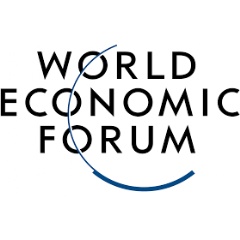World Economic Forum and Ontario Launch Pilot Project to Tackle Rampant Diabetes
Toronto, Ontario – WEBWIRE – Friday, February 16, 2018
Georg Schmitt, Head of Corporate Affairs, World Economic Forum; Email: georg.schmitt@weforum.org
- More than three million Canadians have Type 2 diabetes; almost 6 million expected in Ontario by 2026
- Direct and indirect cost of diabetes in Canada expected to rise to almost $17 billion by 2020
- 2021 will mark the 100th anniversary of the discovery of insulin at the University of Toronto
- 70 stakeholders working together in new World Economic Forum project to reduce impact of diabetes
- New Report “Mobilizing Cooperation for Health System Transformation” launched to offer framework for pilot
- For more information visit https://wef.ch/valueinhealthcare
The World Economic Forum today launched a coalition with 70 healthcare representatives in a pilot project to reduce the negative impact of Type 2 diabetes in Ontario. The Forum is partnering with Health Quality Ontario and the Boston Consulting Group in the pilot, which will focus its work in the Toronto Central, Mississauga Halton, Central West and North West Local Health Integration Networks (LHINs).Canada is in the bottom one-third of OECD countries for age-adjusted diabetes prevalence, and 3.5 million Canadians have Type 2 diabetes. This population is three times more likely to be hospitalized with complications from cardiovascular disease and faces a reduced life expectancy of five to 15 years. In Ontario, 4.6 million people (30% of the population) are classified diabetic or pre-diabetic. This number is expected to increase to 5.9 million by 2026. Diabetic complications further compound the disease burden: diabetic retinopathy is the leading cause of blindness and diabetes is the primary cause of end-stage kidney disease in Canada. There are also 11,000 diabetes-related heart attack hospital admissions and 2,000 diabetic amputations in Canada every year.Given Canada’s challenges with diabetes, the coalition aims to reduce the prevalence and rate of complications resulting from Type 2 diabetes to be in line with average OECD levels in these regions by 2021, which will mark the 100-year anniversary of the discovery of insulin at the University of Toronto. This could result in savings of up to $1.9 billion and 550,000 lives positively affected.Seventy representatives from the public sector, hospitals, primary care, community services, pharmaceutical and medical device organizations, patient advocacy groups and academia will join this project, a model of unprecedented collaboration, to meet the needs of diabetes patients.The transformation to a person-centred health system has the potential to deliver improved health outcomes at lower cost and is the essence of the global Value in Healthcare project of the World Economic Forum in collaboration with The Boston Consulting Group.“This pilot provides a unique opportunity to explore prospects for further improvement in delivering value to patients with Type II diabetes in Ontario by focusing on outcomes that matter to them. I look forward to engaging and collaborating with healthcare representatives and patients who are committed to sharing knowledge and expertise towards achieving this vision”, said Joshua Tepper, President and Chief Executive Officer, Health Quality Ontario.“The economic and social burden of this disease can be effectively countered only through robust cooperation and collaboration across the healthcare sector. Having successfully launched similar pilots in the region, the World Economic Forum is delighted to have the commitment and leadership of key stakeholders in working together to reduce the impact of diabetes”, Vanessa Candeias, Head of Global Health and Healthcare System Initiative, World Economic Forum, noted.Three critical mechanisms for accelerating progress on these challenges are highlighted in the World Economic Forum’s new report “Mobilizing Cooperation for Health System Transformation”, also launched today. Co-authored with The Boston Consulting Group, the report outlines:
- New models for multistakeholder cooperation at city, regional or national levels
- New standards for health informatics to connect disparate data sources and enable learnings from international datasets
- New roles for leadership across stakeholders to engage in system-level change
The themes of the report were discussed at the World Economic Forum Annual Meeting 2018 in Davos, Switzerland, with industry leaders including Omar Ishrak (Chairman and Chief Executive Officer, Medtronic), Bruce Broussard (President and Chief Executive Officer, Humana), Frans van Houten (Chairman and Chief Executive Officer, Philips), Christophe Weber (President and Chief Executive Officer, Takeda Pharmaceuticals), and Laurie Glimcher (President and Chief Executive Officer, Dana-Farber Cancer Institute), and moderated by Clifton Leaf (Editor-in-Chief, Fortune Magazine).
( Press Release Image: https://photos.webwire.com/prmedia/6/220429/220429-1.png )
WebWireID220429
This news content was configured by WebWire editorial staff. Linking is permitted.
News Release Distribution and Press Release Distribution Services Provided by WebWire.
